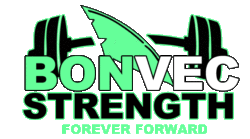Every practice, my high school baseball coach would huddle the team together and snap his fingers. “Give me 30 seconds, boys,” he’d say sternly.
When coach said this, everyone knew the next half-minute would set the tone for the entire practice. We’d all forget about the quiz we failed, the fight with our girlfriend and all the other stresses from the day. It was time to focus and get to work.
Baseball is a game of 30-second bursts of focus. One pitch at a time was our favorite saying. Once that pitch was over, you flush the previous result from your mind and get ready for the next pitch. Thirty seconds on, 30 seconds off.
Lifting weights requires a similar on-and-off mentality. Give each set and each rep unrelenting focus, then shut it down until the next set. Don’t let your mind wander when it’s time to work, and don’t dwell on the result of the previous set. Whether the result was good or bad, the only thing that matters is your next set.
WHY WE FAIL
I see many lifters put all their eggs in the physical preparation basket. They ravage their bodies with intense exercise, but their minds go untrained. These lifters often do well in their day-to-day workouts, but fall short when it matters most. When it comes time to test maxes, whether in the gym or in competition, they fail to realize their potential.
It’s rarely the body that fails first. It’s the mind that crumbles under heavy load.
Does this scenario sound familiar? I know I’ve been there.
Maybe it’s not your lack of physical strength that’s holding you back. Maybe it’s your inability to shut out the rest of the world for 30 seconds at a time.
SO WHAT, NEXT REP
How does one go about training the mind to be unbreakable under pressure? It’s simple, but not easy. You must train yourself to focus on the only thing that matters for 30 seconds at a time. But that’s not the hardest part.
What’s most challenging is shutting your brain OFF until your next 30 second burst of focus. Adopt a “so what? next rep” mentality. Accept the fact that there’s nothing you can do about what just happened. All you can do is put 100 percent of your focus and energy into your next rep.
Training partner gave a bad handoff on the bench press? So what, next rep.
The spotters mis-loaded the bar? So what, next rep.
The judges made a bad call? So what, next rep.
That’s literally all you can do. No whining, no complaining, no feeling sorry for yourself. Of course you don’t master this mindset over night. Much like muscles, your brain needs training.
TRAIN YOUR BRAIN
Lifting is an endeavor that lends itself to overanalyzing. We care a lot so we think too much.
How do we care less to accomplish more? There are several steps you can take.
Concentration Grids
I’m a big fan of concentration grids. I was introduced to them by Brian Cain, my high school athletic direction who’s now a world-renowned mental game coach. Simply cross out the numbers from 00 to 99 as fast as you can. Record your time and try to beat it next time. This teaches you to be in the present moment, block out all distractions and do work.
Click the image below for a PDF of concentration grids. Print them out and train your brain!
Focus Phrases
I talked about using focus phrases in a previous blog about positive self-talk, and they work wonders. Choose a short phrase and repeat it to yourself over and over as you approach the bar. This will narrow your focus and block out any feelings of doubt.
Your focus phrase can be technique-based (i.e. “knees out, knees out, knees out”), tension-based (i.e. “tight, tight, tight” or “squeeze, squeeze, squeeze”) or intent-based (i.e. “crush it, crush it, crush it” or “drive, drive, drive”). Repeat your phrase over and over until the set is done.
Narrow Your Gaze
The eyes are powerful. Use your eyes to create your 30 seconds of focus.
Pick a spot somewhere in the room that’s clearly visible during your set. It may be a spot on the wall during squats or a rafter on the ceiling during the bench press. Whatever it is, stare at that spot with laser-like focus. This will prevent your eyes – and your mind – from wandering.
Actively Seek Feedback
If you have a coach, actively ask for their feedback. Coaches aren’t mind readers, and sometimes we can’t tell if something is off. In fact, the best coaches don’t say things just for the sake of saying them; they choose their words carefully. Solicit feedback, ask questions and let your coach do the thinking for you.
BETTER BRAIN, BETTER GAINS
Don’t have million-dollar muscles and a 10-cent brain. Train your mind just as you would anything else: frequently and intensely. Learn to apply 100 percent focus for 30 seconds at a time and you’ll become more consistent when it matters most.

